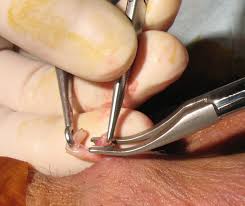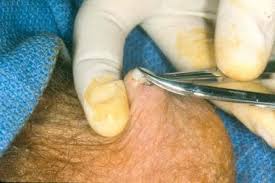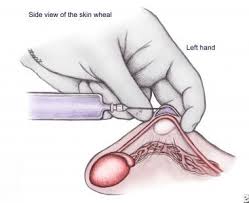Understanding the Vasectomy Procedure: Safe and Effective Birth Control
Are you considering a vasectomy as a permanent form of birth control? A vasectomy is a simple and safe procedure that is highly effective in preventing pregnancy. It is a permanent male sterilization procedure performed to prevent the sperm from reaching the semen. This procedure is a great option for couples who have decided they are done having children and are looking for a reliable method of contraception. With a vasectomy, you can take control of your own reproductive HEALTH AND enjoy a more relaxed lifestyle. Please keep reading for details on the following topics:
Things that will not be affected by a vasectomy
Risks of a vasectomy
How a vasectomy is done
Care after the vasectomy

VASECTOMY
A permanent male sterilization procedure performed to prevent the sperm from reaching the semen
The sperm duct (tubes that carry sperm from a man’s testicles to the penis) are cut or blocked
The procedure is 99% effective and lasts less than 30 minutes
The man’s sex drive will not be affected
A contraceptive method is required for at least 3 months or 20 ejaculates since sperm can leak into the semen via the sperm ducts
A barrier method such as a condom is required for protection against STI
Things that will not be affected by a vasectomy
The person’s masculinity or sexuality
Testosterone levels
The volume of a man’s ejaculate
Other organs
Risks of the vasectomy
Bruising, swelling and pain to the scrotom
Bleeding in the semen or scrotom
Fluid buildup in the testicle that causes pain on ejaculation
Infection
Irreversible
Does not offer protection against sexually transmitted infections- STI
Regret
Sperm granuloma- painful pea sized lump developed from sperm leaking from the cut sperm duct. the excess sperm is usually absorbed by the body
Congestion or pressure in the scrotom caused by the excess sperms which resolves within 3 months
Failure of the procedure resulting in an unplanned pregnancy

How a vasectomy is done
Before the procedure the man must:
Be sure that this is what he wants
Discuss the procedure and side effects with the doctor to address any concerns
Discuss the procedure and effects with his partner
Sign a consent form for the procedure
Avoid taking blood thinners, NSAIDs and vitamin K at least 7 days before the procedure to avoid bleeding
On the day of the operation shave away the hairs with a razor and wash the scrotom properly to minimize infection
Walk with a clean tight-fitting underwear to wear after the operation
The surgeon will inject an anesthetic agent to numb the area
The surgeon will examine the scrotom to locate the sperm duct
Small holes or cuts will be made into the skin of the scrotom to reach the sperm duct
When the tubes are located, a small part will be cut
The ends of the tubes will be sealed by tying, burning or stitched together
Arrange for a ride home to minimize injury to the incision site after the surgery

Care after the vasectomy
To cope with pain
Hold an ice pack on the scrotom for no more than 15 minutes at a time
Wear supportive underwear
Take pain medication as ordered
Avoid sexual intercourse, sports, heavy lifting and other strenuous activities for about 1 week
An analysis of the semen is conducted with the first 4 months after the operation to ensure that the process worked
Seek medical help for any abnormal symptoms such as pain, swelling and discomfort
One can shower the day after the surgery and pat dry the scrotom afterwards
Avoid swimming for at least 2 weeks
When to get urgent medical care
Severe pain to the scrotom
Swelling to the scrotom
Bleeding from the wound site
Temperature above 100 degrees Fahrenheit or 37.7 degrees Celsius
Disclaimer: The information provided in this content is for general informational purposes only. It is not intended as medical or healthcare advice, diagnosis, or treatment. Always seek the advice of a qualified healthcare professional with any questions you may have regarding a medical condition or healthcare decisions.

